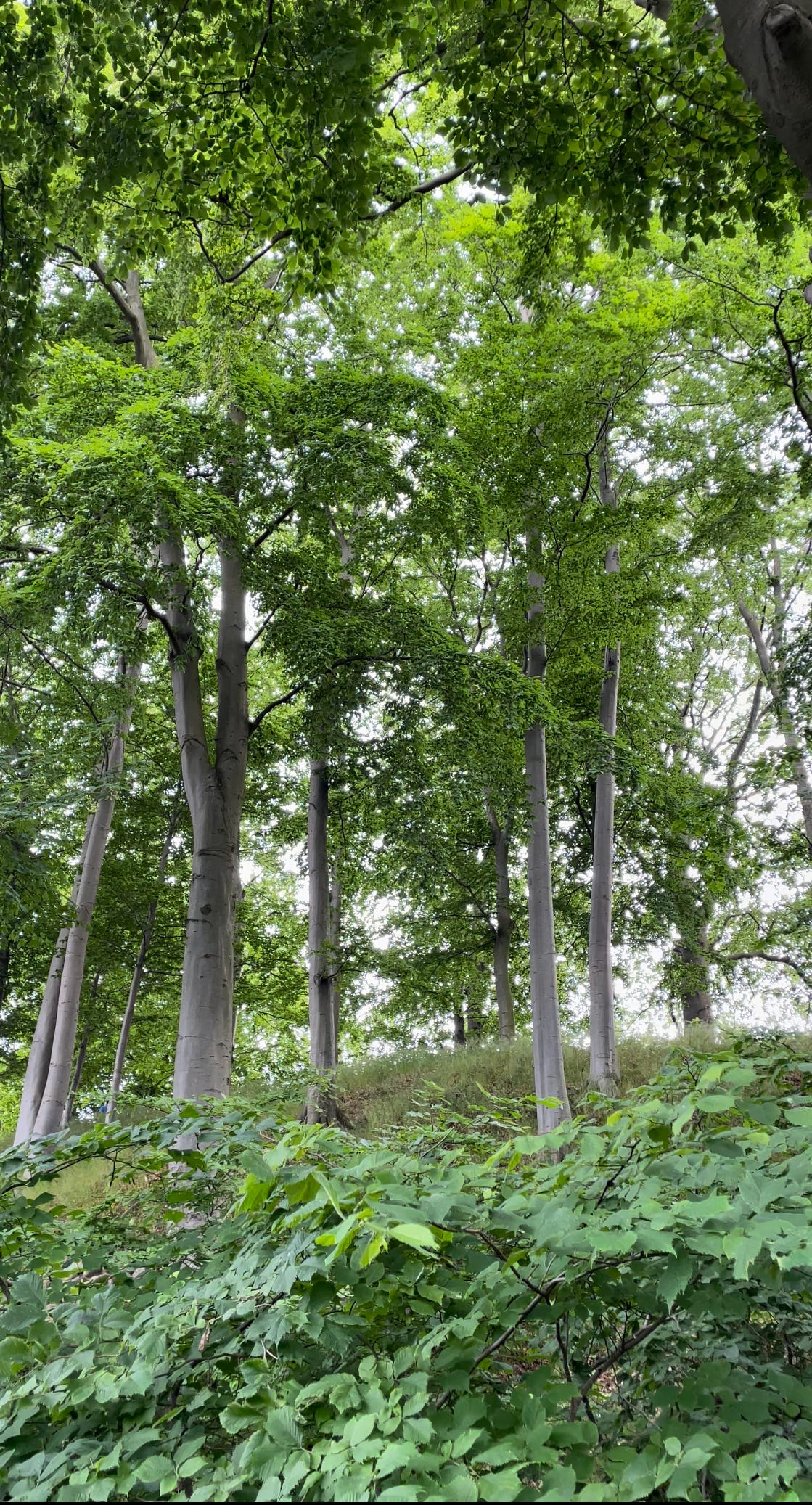On Time, Outside of a Linear System
Wherever you go, there you are. But the land isn't buying any of it, because she doesn't have to.
Welcome back to The Link, a bi-weekly newsletter making the connection between “regenerative farming,” and you—city slickers, country mice, and everyone living in the in between—every other Sunday.
Given the state of life right now, I can’t help but think a lot about time—how we try to force and control it. How there never seems to be enough of it. How attempting to grasp it feels like holding water in one’s hands, especially after the past few years of a pandemic. And after all of that, everyone is still so busy, but what for?
If you read the last newsletter, you’ll remember my chat with James Skeet of Spirit Farm about soil health, and why it is so critically important to every component of life. The first day I met James on the farm, I was sitting beside him eating lunch when I turned to ask a very naive question. “How do you know when it’s time to slaughter the animals?” I asked. He put down his sandwich and looked at me with a smirk. “What is your relationship to time? Do you try to control it, and penetrate it, or do you let it reveal itself to you?” No one has ever asked me such a profound question before in my life, so I naturally stuck as much food into my mouth to dodge an answer. I didn’t know what to say. He chuckled. “Don’t worry, it’s indigenous cosmology. We can discuss it later.”
Yesterday, I was standing all alone in an ancient forest outside of the United States that has outlived the thousands of generations that have passed through it. I stood below gigantic trees, looking up at branches that have taken their own cycles to grow. This particular forest is still breathing and cycling through its own sense of time, uncontrolled, uncontainable, and thriving.
For many Western-minded people, time is a forward moving train on a linear path, but it is our memories that loop us back into different perspectives on time. It’s a funny thing, how when you give into memory, the past is ever present and can repeat patterns into the future like a circle, not a line.
So there I was, standing alone or among the canopy of trees, thinking about how the moment I step back into America, I won’t have the rights to my own body. I thought of many others—those before me and those ahead of me who have experienced and will experience the same inability to thrive like this forest.
The inclination to control other people's bodies, time, and the land is all interconnected to a system whose bloodlines are based in a colonizer's history. Linearity is holding us all back. You can get a sense of what I’m referring to in books like Black Elk Speaks, or Neither Wolf Nor Dog, written by Kent Nerburn, who follows a 95-year-old Lakota elder around Dakota lands to record “Dan” the elder’s experiences. As the book unfolds, Dan teaches Nerburn the worldview differences between his midwestern American mentality and Dan’s indigenous perspective.
At one point in the story, a discussion of land ownership begins as Dan explains the inherit worldview differences in their cultures. “You need to understand this. We did not think we owned the land. The land was part of us. We didn’t even know about owning the land. It is like talking about owning your grandmother. You can’t own your grandmother. She just is your grandmother. Why would you talk about owning her?”
So why all this talk of time and land ownership? It’s not just the colonizer ways we are still bound to as a country, but in fact the literal land access great divide between small farmers and ranchers (especially young ones). American Farmlands (estimated over 911 million acres) are becoming more scarce, and those who “own” it are not necessarily using it for farmland use (hey Bill Gates), but rather capital gain. How will we feed everyone?
The promise of this newsletter has always been to punk the system by bending things into a positive light, and this is just as much about you as it is me. So in the midst of all of the things that are being revoked, review your relationship to the linear. Become a land steward (even in an urban setting) and remember that you don’t own any land because we live on stolen land.
Invest in local farmers, and if you have land that you aren’t putting to use, what ways can you extend it to others who can heal the space as we all float through this ephemeral existence together?
I’ll be back in two weeks to interview some brilliant voices about land access and much more. Until then, stay hydrated, take a nap as a way to rebel against late stage capitalism, treat other humans and sentient beings with respect and reciprocity, and take care of yourself.
Oh hey! You’re still reading this? If you have future topics, smart humans, or concepts you’d like to see featured, respond to this newsletter or drop me a line and say hey: Helen@HelenHollyman.com.
If you liked this post from The Link, I dare you to share it!


